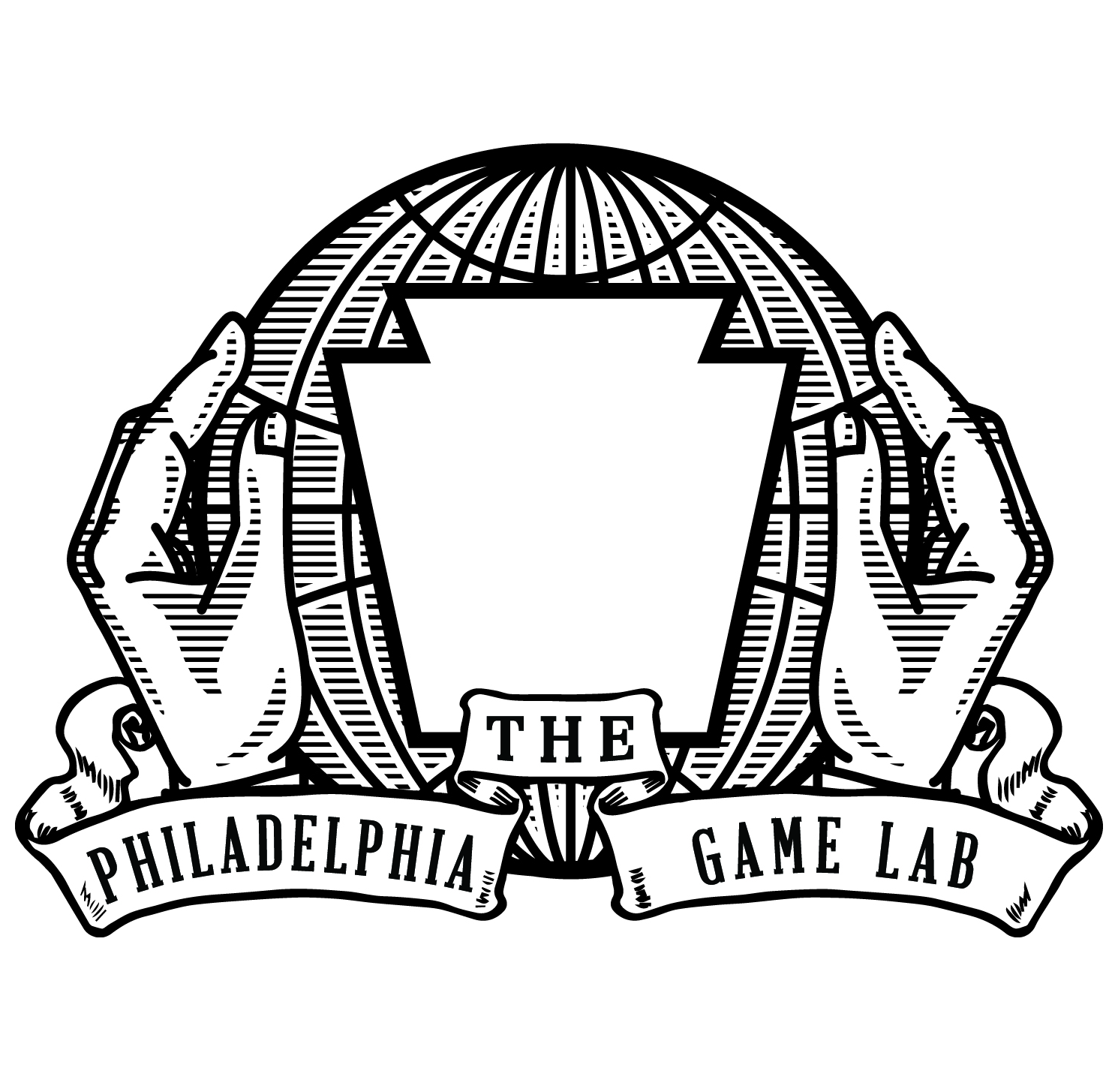Overview
The Pennsylvania Game Studio is a funded initiative of the Philadelphia Game Lab. Its mandate is to create “notable” works in games and game technology, and it exclusively hires students and recent graduates of Pennsylvania universities. The outcomes it seeks are broad recognition of resources and ability in the region, as well as the formation of new businesses in games. Hence, the metric of notability is perhaps the most important thing to keep in mind regarding everything we seek to do.
“Notable Work”
In order to ensure that our identification of notable work is in accordance with the most informed industry expertise, each work must be mentored by at least three strategic collaborators. Ideally, all works will achieve notability in both creative and technical achievement, although on occasion it will certainly skew toward one or the other. In order to focus our efforts toward ensuring value, we have defined our works in several categories, each of which will include ongoing technical explorations and learning. We are also fortunate that among the universities from which we draw our teams, there is not only a large base of highly skilled and talented individuals, but that within that group is expertise in every aspect of technology, from sophisticated computer graphic generation to sensors, robotics, and artificial intelligence. We also actively collaborate with faculty to identify work that we should be doing, and to understand the strengths of their programs and students.
Business Creation
There are several methods we employ toward facilitating creation of new businesses, but we emphasize that all are as effective in creating a robust and collaborative ecosystem for game creation, as in creating businesses. This is important to note, because most of the people who will work in the Studio are not looking to create their own startups. We have found that we are able to attract some of the smartest and most motivated young people in regional universities, and that contrary to what a few tech startup folks might believe, most are more interested in getting experience and working with other great creators than in leaping into startup formation. We do see opportunities in forming new game businesses, though, and some will be formed by developers working in the Studio. Here are some methods we employ to facilitate this sort of activity:
- Creation of Significant Game Development Technology. In this area of our efforts, we are focused on creating open source technology that will be of meaningful value in game creation. Since we work with experts around the world, the profile of students involved in origination of this software is enhanced, and they may well have opportunities to work, as experts, with entities using what we have created. They may do this as freelance vendors, or create their own businesses here to exploit their expertise, drawing in collaborators with whom they built the enabling software. However, the most sublime opportunity this activity forms is to create robust technology that participants may use to build their own envisioned games, with the benefit of all of our collective expertise invested into an underlying platform that effectively pre-funds their game development.
- Notable Works. As well as ensuring that our projects are worth the effort of building, the “notability” benchmark should also serve to incline projects toward being representative of work that will be of interest for future growth and exploration. Hence, whether the team itself seeks to grow toward these next opportunities as a new business, or an external entity (perhaps one of our partners) seeks to work with team members in doing so, meeting our standards for a project should create opportunities.
- Flexible Collaborations. We are open to different models of collaboration and development, under the condition that these are transparent and that all participating team members know what they’re signing on to. An example of this is the first commercial spin off we facilitated, which was led by an experienced game producer who was moving to this region, eager to start a new game development entity. In addition to his expertise, he brought a design document and external resources. Developers working for the Studio provided all resources in building his game, and when first phases were complete, he took a set of this team to form his new shop.
